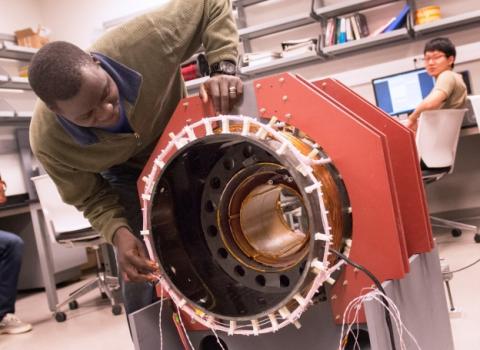 Mabarara University of Science and Technology (MUST) in collaboration with the Pennsylvania State University, Boston Children’s Hospital, Delft University of Technology, Leiden University medical center, and the CURE Children’s Hospital of Uganda, has won grants from the US National Institutes of Health and the Netherlands NWO Open Mind programme totaling over $400,000 to develop sustainable MRI (Magnetic Resonance Imaging) technology.
Mabarara University of Science and Technology (MUST) in collaboration with the Pennsylvania State University, Boston Children’s Hospital, Delft University of Technology, Leiden University medical center, and the CURE Children’s Hospital of Uganda, has won grants from the US National Institutes of Health and the Netherlands NWO Open Mind programme totaling over $400,000 to develop sustainable MRI (Magnetic Resonance Imaging) technology.
This is part of a $2 million grant meant for research aimed at reducing the number of infant death due to neonatal sepsis in developing countries.
Access to Medical imaging technologies and services still remain a challenge in low and middle income countries (LMICs).
The most common imaging modalities available are X-ray technologies and ultrasound, none of which are appropriate for brain imaging.
Diagnosis and monitoring of mental and brain illnesses such as epilepsy, hydrocephalus, and trauma rely mainly on computed tomography (CT) even though they are known to have adverse effects from radiation, especially with repeated exposures as is required in the management of neurosurgical interventions.
Conventional magnetic resonance imaging (MRI), a much safer technology than CT is very expensive for LMICs to afford.
The capital costs of installing medical grade MRI systems can range from $1-$3 million. On top of the high procurement and installation costs, other requirements such as cryogens and technical expertise have prevented the proliferation of MRI technology in developing countries.
The low field MRI research to be set up at MUST is a continuation of the Ph.D. research conducted by Dr. Johnes Obungoloch with Dr. Steven J Schiff at the Pennsylvania State University in the USA. The grants will enable the implementation of the low field MRI technology at MUST and the CURE Children’s Hospital of Uganda. The grants will also support graduate and post graduate training, building the engineering and research capacity at MUST in sustainable MRI and healthcare technology in general.
The project will be implemented by Dr. Johnes Obungoloch together with Prof. Steven J Schiff who has recently been appointed as an honorary professor in the department of Biomedical Engineering at MUST. We are grateful to Prof. Steven J Schiff, NIH, NWO and MUST leadership for supporting research.
